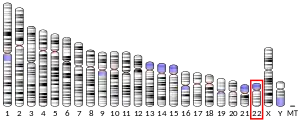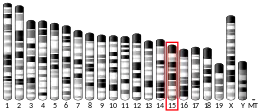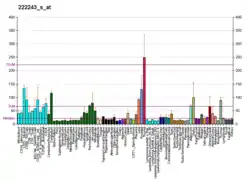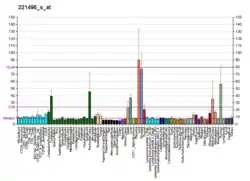| TOB2 | |||||||||||||||||||||||||||||||||||||||||||||||||||
|---|---|---|---|---|---|---|---|---|---|---|---|---|---|---|---|---|---|---|---|---|---|---|---|---|---|---|---|---|---|---|---|---|---|---|---|---|---|---|---|---|---|---|---|---|---|---|---|---|---|---|---|
| Identifiers | |||||||||||||||||||||||||||||||||||||||||||||||||||
| Aliases | TOB2, TOB4, TOBL, TROB2, transducer of ERBB2, 2, APRO5 | ||||||||||||||||||||||||||||||||||||||||||||||||||
| External IDs | OMIM: 607396 MGI: 1888525 HomoloGene: 9447 GeneCards: TOB2 | ||||||||||||||||||||||||||||||||||||||||||||||||||
| |||||||||||||||||||||||||||||||||||||||||||||||||||
| |||||||||||||||||||||||||||||||||||||||||||||||||||
| |||||||||||||||||||||||||||||||||||||||||||||||||||
| |||||||||||||||||||||||||||||||||||||||||||||||||||
| |||||||||||||||||||||||||||||||||||||||||||||||||||
| Wikidata | |||||||||||||||||||||||||||||||||||||||||||||||||||
| |||||||||||||||||||||||||||||||||||||||||||||||||||
Protein Tob2 (transducer of ERBB2, 2) is a protein that in humans is encoded by the TOB2 gene.[5][6][7][8]
TOB2 belongs to the TOB (see TOB1; MIM 605523)/BTG1 (MIM 109580) family of antiproliferative proteins, which are involved in the regulation of cell cycle progression.[supplied by OMIM][7]
Interactions
References
- 1 2 3 GRCh38: Ensembl release 89: ENSG00000183864 - Ensembl, May 2017
- 1 2 3 GRCm38: Ensembl release 89: ENSMUSG00000048546 - Ensembl, May 2017
- ↑ "Human PubMed Reference:". National Center for Biotechnology Information, U.S. National Library of Medicine.
- ↑ "Mouse PubMed Reference:". National Center for Biotechnology Information, U.S. National Library of Medicine.
- 1 2 Ikematsu N, Yoshida Y, Kawamura-Tsuzuku J, Ohsugi M, Onda M, Hirai M, Fujimoto J, Yamamoto T (Jan 2000). "Tob2, a novel anti-proliferative Tob/BTG1 family member, associates with a component of the CCR4 transcriptional regulatory complex capable of binding cyclin-dependent kinases". Oncogene. 18 (52): 7432–41. doi:10.1038/sj.onc.1203193. PMID 10602502.
- ↑ Dunham I, Shimizu N, Roe BA, Chissoe S, Hunt AR, Collins JE, Bruskiewich R, Beare DM, Clamp M, Smink LJ, Ainscough R, Almeida JP, Babbage A, Bagguley C, Bailey J, Barlow K, Bates KN, Beasley O, Bird CP, Blakey S, Bridgeman AM, Buck D, Burgess J, Burrill WD, O'Brien KP, et al. (Dec 1999). "The DNA sequence of human chromosome 22". Nature. 402 (6761): 489–95. Bibcode:1999Natur.402..489D. doi:10.1038/990031. PMID 10591208.
- 1 2 "Entrez Gene: TOB2 transducer of ERBB2, 2".
- ↑ "TOB2 transducer of ERBB2, 2 [Homo sapiens (human)] - Gene - NCBI". www.ncbi.nlm.nih.gov. Retrieved 2023-09-24.
Further reading
- Hirosawa M, Nagase T, Murahashi Y, et al. (2001). "Identification of novel transcribed sequences on human chromosome 22 by expressed sequence tag mapping". DNA Res. 8 (1): 1–9. doi:10.1093/dnares/8.1.1. PMID 11258795.
- Suzuki T, Matsuda S, Tsuzuku JK, et al. (2001). "A serine/threonine kinase p90rsk1 phosphorylates the anti-proliferative protein Tob". Genes Cells. 6 (2): 131–8. doi:10.1046/j.1365-2443.2001.00406.x. PMID 11260258.
- Yoshida Y, Hosoda E, Nakamura T, Yamamoto T (2001). "Association of ANA, a member of the antiproliferative Tob family proteins, with a Caf1 component of the CCR4 transcriptional regulatory complex". Jpn. J. Cancer Res. 92 (6): 592–6. doi:10.1111/j.1349-7006.2001.tb01135.x. PMC 5926753. PMID 11429045.
- Sasajima H, Nakagawa K, Yokosawa H (2002). "Antiproliferative proteins of the BTG/Tob family are degraded by the ubiquitin-proteasome system". Eur. J. Biochem. 269 (14): 3596–604. doi:10.1046/j.1432-1033.2002.03052.x. PMID 12135500.
- Strausberg RL, Feingold EA, Grouse LH, et al. (2003). "Generation and initial analysis of more than 15,000 full-length human and mouse cDNA sequences". Proc. Natl. Acad. Sci. U.S.A. 99 (26): 16899–903. Bibcode:2002PNAS...9916899M. doi:10.1073/pnas.242603899. PMC 139241. PMID 12477932.
- Collins JE, Wright CL, Edwards CA, et al. (2005). "A genome annotation-driven approach to cloning the human ORFeome". Genome Biol. 5 (10): R84. doi:10.1186/gb-2004-5-10-r84. PMC 545604. PMID 15461802.
- Gerhard DS, Wagner L, Feingold EA, et al. (2004). "The Status, Quality, and Expansion of the NIH Full-Length cDNA Project: The Mammalian Gene Collection (MGC)". Genome Res. 14 (10B): 2121–7. doi:10.1101/gr.2596504. PMC 528928. PMID 15489334.
This article is issued from Wikipedia. The text is licensed under Creative Commons - Attribution - Sharealike. Additional terms may apply for the media files.





